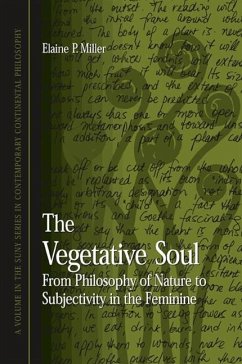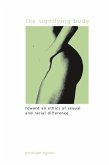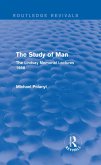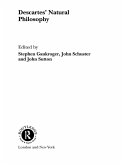The Vegetative Soul demonstrates that one significant resource for the postmodern critique of subjectivity can be found in German Idealism and Romanticism, specifically in the philosophy of nature. Miller demonstrates that the perception of German Idealism and Romanticism as the culmination of the philosophy of the subject overlooks the nineteenth-century critique of subjectivity with reference to the natural world. This book's contribution is its articulation of a plant-like subjectivity. The vision of the human being as plant combats the now familiar conception of the modern subject as atomistic, autonomous, and characterized primarily by its separability and freedom from nature. Reading Kant, Goethe, Hölderlin, Hegel, and Nietzsche, Miller juxtaposes two strands of nineteenth-century German thought, comparing the more familiar "animal" understanding of individuation and subjectivity to an alternative "plantlike" one that emphasizes interdependence, vulnerability, and metamorphosis.
While providing the necessary historical context, the book also addresses a question that has been very important for recent feminist theory, especially French feminism, namely, the question of the possible configuration of a feminine subject. The idea of the "vegetative" subject takes the traditional alignment of the feminine with nature and the earth and subverts and transforms it into a positive possibility. Although the roots of this alternative conception of subjectivity can be found in Kant's third Critique and its legacy in nineteenth-century Naturphilosophie, the work of Luce Irigaray brings it to fruition.
While providing the necessary historical context, the book also addresses a question that has been very important for recent feminist theory, especially French feminism, namely, the question of the possible configuration of a feminine subject. The idea of the "vegetative" subject takes the traditional alignment of the feminine with nature and the earth and subverts and transforms it into a positive possibility. Although the roots of this alternative conception of subjectivity can be found in Kant's third Critique and its legacy in nineteenth-century Naturphilosophie, the work of Luce Irigaray brings it to fruition.
Dieser Download kann aus rechtlichen Gründen nur mit Rechnungsadresse in A, D ausgeliefert werden.









